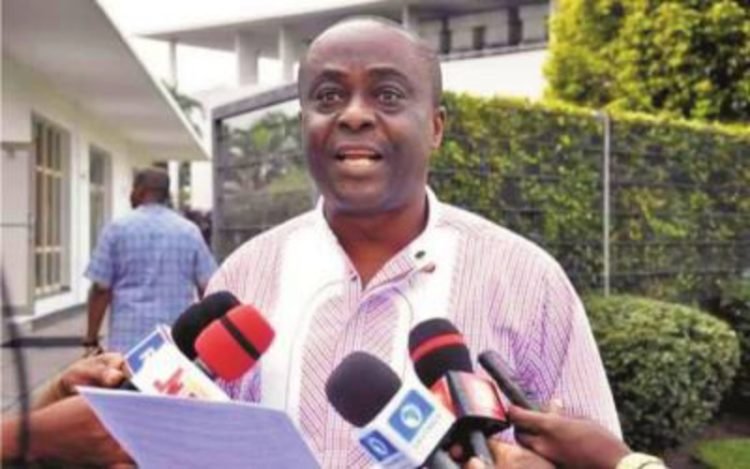The Rivers State Deputy Governor, Professor Ngozi Odu, has announced the commencement of a major relief intervention for flood-affected communities across the state. This includes the distribution of essential materials to residents in Internally Displaced Persons (IDP) camps and impacted households.
Prof. Odu, who chairs the Rivers State Flood Prevention and Management Committee, disclosed this during a press briefing at Government House, Port Harcourt, following an inspection of the relief materials stored at NNS Pathfinder. She noted that the distribution exercise would begin immediately.
Addressing recent reports alleging widespread flooding in the state, the Deputy Governor dismissed such claims as misleading. She clarified that while some communities are vulnerable, the situation has not reached alarming proportions as suggested by certain media outlets.
Prof. Odu also explained that the committee had faced temporary delays due to an administrative transition, during which its financial account was frozen. The account, she confirmed, has now been reopened, allowing the committee to resume operations fully.
According to her, about 80 percent of the state’s flood intervention fund had already been utilized by the previous committee for key projects, including repairs of IDP camps, installation of boreholes, and procurement of non-perishable relief items.
The Deputy Governor noted that the current committee, reconstituted by Governor Siminalayi Fubara about five weeks ago, is operating in the “mitigation phase” of its three-pronged strategy — advocacy/prevention, mitigation, and post-flood intervention.
Engagements, she said, have been held with leaders from flood-prone Local Government Areas such as Ahoada West, Ahoada East, Ogba/Egbema/Ndoni (ONELGA), and Abua/Odual. Prof. Odu identified the heavily silted Orashi River as a major cause of recurrent coastal flooding in Ahoada West, urging the Federal Government to dredge the river.
She added that distribution of relief materials in some areas would be coordinated through local government chairmen to ensure fair and effective delivery, especially to residents who prefer to remain in their homes rather than relocate to IDP camps.
On urban flooding, the Deputy Governor decried the persistent blockage of drainage channels and construction on waterways, attributing most city flash floods to such activities. She emphasized that flood prevention requires collective responsibility involving the Federal, State, and Local Governments, as well as the public.
Prof. Odu revealed that all local governments have been directed to establish 13-man flood control committees to manage local drainage clearing, culvert repairs, and community sanitation.
“The issue of floods should not just be seen as the responsibility of the floods committee; it must be a collective effort,” she said, urging residents to stop blocking water channels and dumping waste in drains.
Meanwhile, Prof. Odu announced that the committee’s Vice Chairman, who is the Secretary to the State Government, along with the Head of Service, will lead a delegation to condole with the family that recently lost two children in a flood-related incident, presenting an official letter of condolence and support from the state government.
















